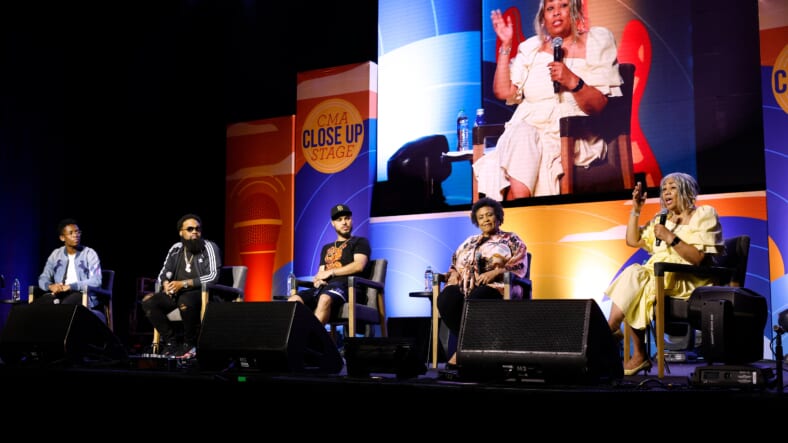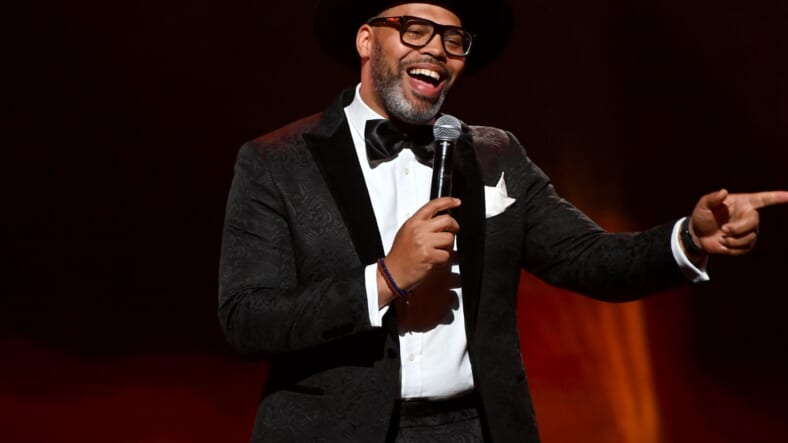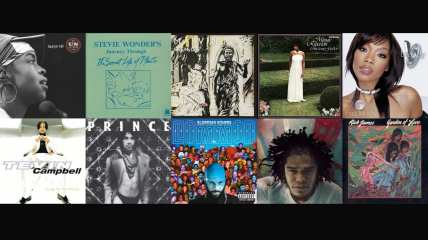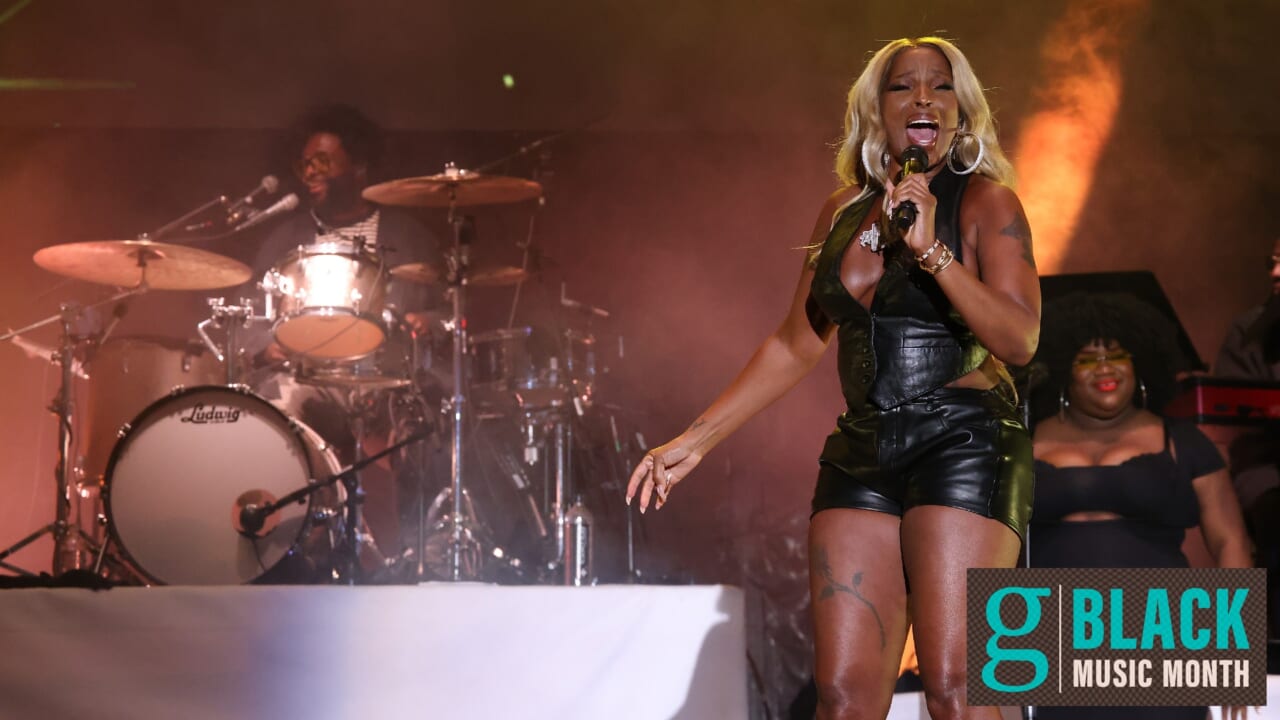Dyana Williams on co-founding Black Music Month and the business of Black music
Interview: In honor of Black Music Month, Matthew Allen spoke with radio legend and media coach Dyana Williams about her part in co-founding Black Music Month, and the importance of Black artists understanding business.
Every June, we celebrate Black Music Month across America. Dyana Williams is one of the reasons why. The legendary radio personality and media coach is known as the Godmother of Black Music Month. She and her ex-husband, the Hall of Fame songwriter/producer Kenny Gamble, were on hand at the White House in 1979 when President Jimmy Carter first recognized Black Music Month.
Today, as the celebration reaches its 43rd year, Williams is just as committed as ever to advancing and preserving Black music. Not only does she want people to honor the enduring quality of Black music in all its forms, she also wants to make sure that Black music practitioners are educated on how the business of music works so that Black artists can break the bad deals and manipulation.

Williams spoke with theGrio about how Black Music Month started and what she would like people to know during the month and beyond.
Black Music Month started after Gamble visited Nashville and noticed how the Country Music Association used its marketing savvy to christen Nashville “Music City” as the home of country/western music. Gamble, who helped define the sound of Philadelphia with partner Leon Huff and songwriter Thom Bell, was immediately intrigued.
“He saw how they galvanized their community around a genre and developed it into a big industry,” Williams told theGrio. “And so he felt the same should happen and could happen for black music.” Gamble would co-found the Black Music Association (BMA). From there, entertainment mogul Clarence Avant arranged for Gamble, Williams and radio DJ Ed Wright to meet with the Carter Administration at the White House in June 1979, when Black Music Month was recognized for its inaugural year.
Since then, Black Music Month has become part of the nation’s fiber. Today, Williams, a prominent board member of the National Museum of African American Music in Nashville, is helping to organize panels and events that help educate listeners about the history of Black music and its importance to the nation at large. She contends that facts about Black music have been “negated, and they need to be corrected. We need to amend the overlooking with the truth and the reality.”
Part of that reality is uncovering the truth about the Black origins of genres long thought to be innovated by white artists. Williams is a big supporter of the Prime Video documentary “For Love & Country,” which tells the story of how Black innovation of country/western music was suppressed. This is just one example of how Black music’s effect on society within and outside the United States gets downplayed.
“It is a global culture. It’s not just indigenous,” Williams said. “Black music is indigenous to our country. It is the creation of African people on the shores of what we call America. It’s the blues, gospel, jazz, and roots. Americana country. Hip hop. Rap. Spoken-word. Jazz.”
Williams says Black music and culture go hand-in-hand and that history proves that Black music informs aspects of culture that influence all corners of the globe.
“When you consider what comes with our music, there’s the language. There’s fashion. We see European fashion,” Williams said. “You know what the Misa Hyltons and the black designers have done. And [fashion houses] make it super expensive. The people buy it, but they’re buying Black culture.”
Since Black music and culture are consumed so heavily and generate billions of dollars in revenue, Williams wants the artists who create the music to get adequate and fair compensation. She says a key to this is “parity of black executives in key decision places. Not just in Black music divisions, but across the music industry where Black music generates multiple millions of dollars in its lifetime.”

When it comes to major record companies, Williams said despite the fact that Black music is at the forefront, representation is still a problem in the front office and in the categorization of music. “We are still behind in that it’s still segregated, there’s still discrimination; there are still all the isms that exist,” she said. “You can find them in the Black music industry specifically.”
Williams also wants artists themselves to become more educated and empowered. She cited artists like Eric Roberson and Chance the Rapper as examples of artists who have thrived in the independent lane, suggesting that some artists use them as templates for economic success for owning masters and publishing.
“I think now more than ever, we need our artists to be cognizant that they can even out the playing field because there’s a thing called the Internet now where artists can go directly to consumers without middlemen,” Williams said.
At the end of the day, Williams said, she hopes that artists, executives and music consumers have the same access to as much information so that it can be utilized to uphold the truth about Black music’s origins and for Black artists to be paid what they deserve. ”What I’ve always wanted is respect for Black music and Black music creators.”
Williams will continue to work to educate about, not only the importance of Black music, but also the myriad sources from which it derives. Black music is one of America’s greatest, most lucrative exports. Williams understands why it continues to be loved worldwide.
“We are verbal people. It’s no shock that hip hop is the No. 1 genre in the world because the sh_t is fly. We are able to tell stories, painful stories, joyful stories, fun stories. In such a magnificent, melodic, poetic manner,” she stressed.
“Shout out to LeRoi Jones/Amiri Baraka, Sonia Sanchez, the Black Arts Movement and everybody before them who come from the oral tradition of telling our story.”
TheGrio is FREE on your TV via Apple TV, Amazon Fire, Roku and Android TV. Also, please download theGrio mobile apps today!



